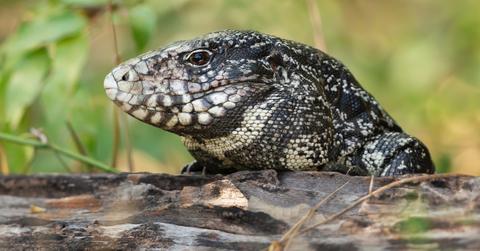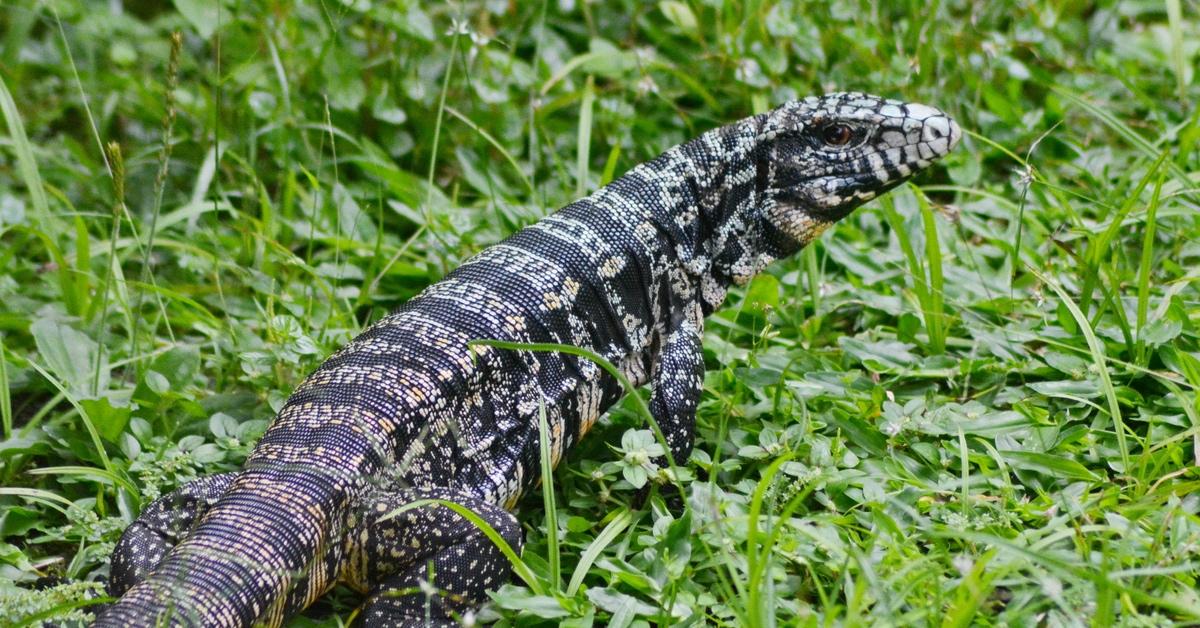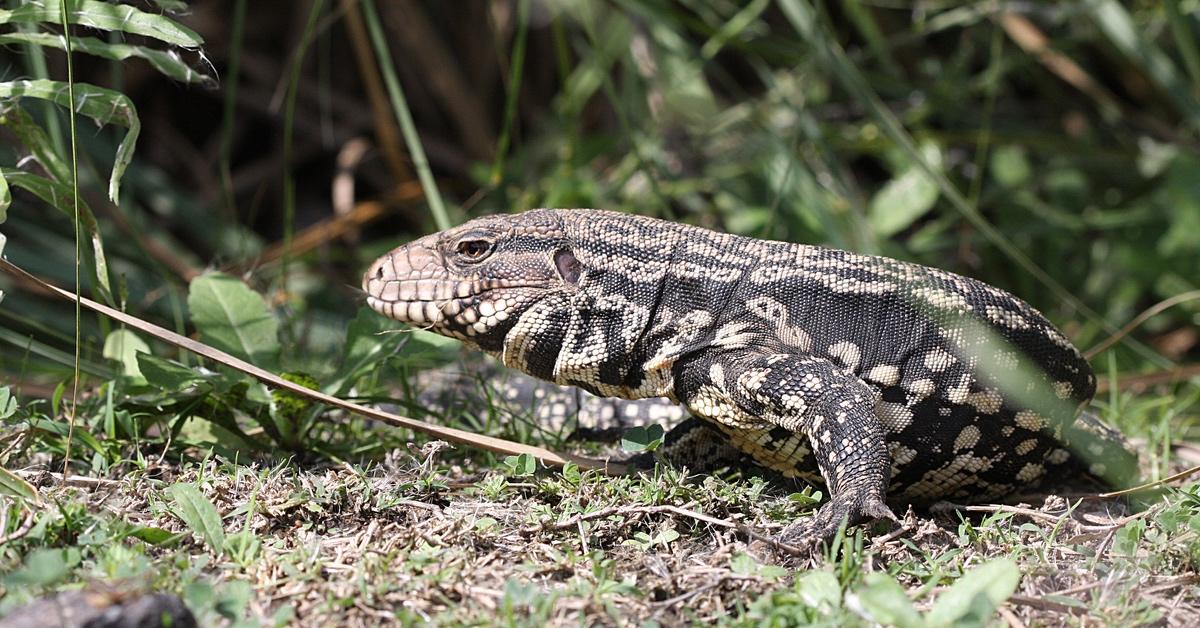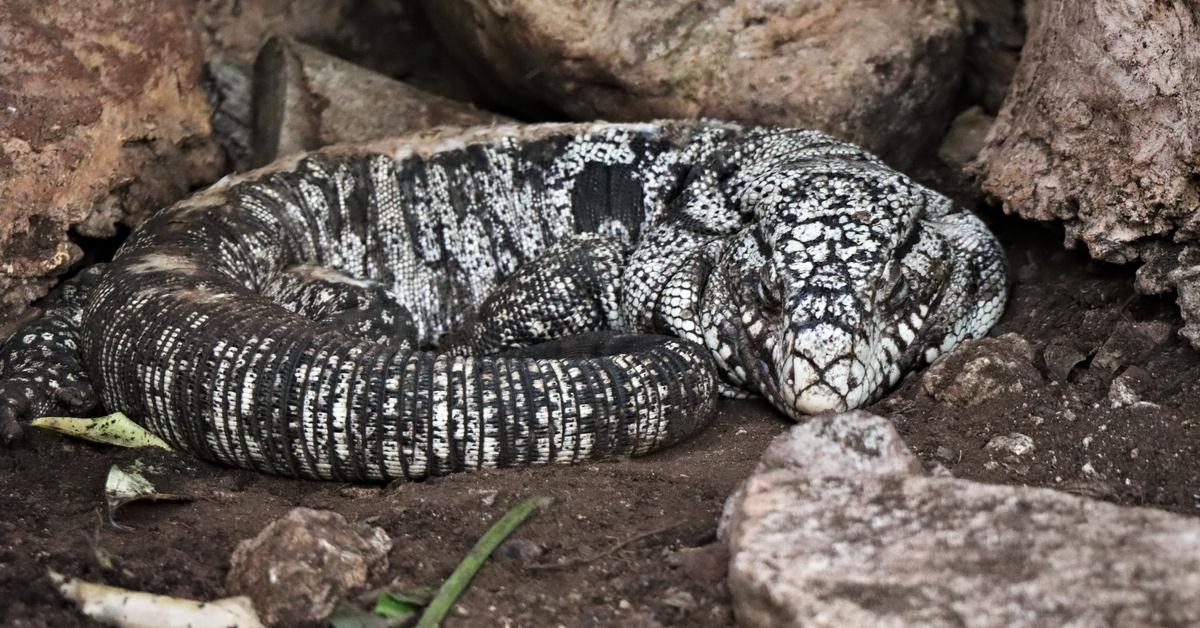Massive Invasive Tegu Lizards Sighted in South Carolina — What to Know About These Giants
Published Dec. 28 2023, 10:31 a.m. ET

The Gist:
- Tegu lizards are an invasive species in the U.S. commonly found in Florida, Georgia, and South Carolina.
- Tegu lizards are native to countries in South America, such as Brazil, Argentina, Uruguay, and Paraguay.
- Tegu lizards harm native wildlife, as they often eat the eggs of native species such as sea turtles, tortoises, and even alligators. Like many reptiles, they can also carry salmonella, which poses a public health threat.
The ever-looming presence of climate change has created several unsettling changes to the ecosystem, but did you know that climate change is also responsible for the uptick in invasive species? Invasive species damage the environment because they often outcompete native species, wreaking havoc on ecosystems.
You may have heard of invasive species like spotted lanternflies and Burmese pythons, but did you know about Tegu lizards? Here's the scoop on all things giant reptile.

Tegu lizards are an invasive species found across the U.S. South, including South Carolina.
Tegu lizards are reptiles with black and white or red stripes down their bodies. They can grow to nearly five feet long and spend winters in burrows during a hibernation-like period known as brumation. Hatchling Tegus have green heads that slowly fade into black and white as they mature.
According to a report from March 2022 by the U.S. Geological Survey, Tegu lizards inhabit at least four counties in Florida and were likely introduced to the U.S. via the pet trade, similar to how Burmese pythons arrived in Florida.
Research ecologist Amy Yackel Adams warned, "Several lines of evidence from recent USGS research studies published from 2018 to 2021 now provide clear indication for managers that the entire southeast portion of the United States is at risk of tegu establishment if lizard releases continue unabated."
Tegu lizards have also become an invasive species issue in Georgia, where the state Department of Natural Resources urges citizens to report sightings of the reptiles.
In December 2023, the South Carolina Department of Natural Resources said that it had received over 100 reports of Tegu sightings since the organization first confirmed the reptiles were in the state, reports WEAU 13 News.
In 2021, South Carolina passed a rule prohibiting Tegu transportation or reproduction into the state, and citizens who spot the lizards in the wild are encouraged to take a photograph and report the sighting using this form.

Why are Tegu lizards harmful to the ecosystem?
According to the Florida Fish and Wildlife Conservation Commission (FWC), Tegu lizards' diets include fruit, eggs, and small animals such as rodents or other reptiles. In Florida, Tegu has been documented eating alligator eggs, tortoise eggs, sea turtle eggs, and nesting bird eggs, endangering the native species population.
The Georgia Department of Natural Resources also explains that Tegu could spread parasites to native wildlife and endanger native crops. Like many reptiles, Tegu can also carry salmonella, potentially endangering human populations.

How can you get rid of Tegu lizards?
Similar to the handling of Burmese pythons, wildlife officials in Florida and Georgia state that "humane killing" of these animals is legal on privately owned properties with landowner permission; however, "animal cruelty and local ordinances apply."
In most places, state officials use reported sightings to trap and remove the species from the wild. If you have a Tegu you wish to legally surrender, do so through Florida's Exotic Pet Amnesty Program.